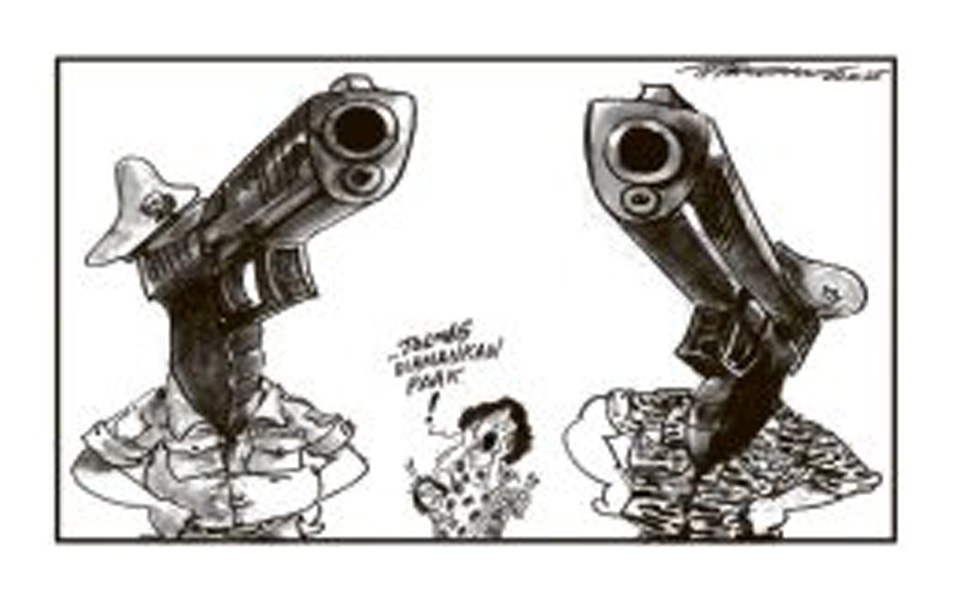
Woman with children: Please save us Mr!
Amnesty International Indonesia is pushing for reform of the military justice system and a thorough evaluation of the use of firearms by members of the Indonesian Military (TNI) and the National Police (Polri) following the fatal shooting of a car rental business owner last week by members of the Indonesian Navy (TNI AL).
Amnesty International Executive Director Usman Hamid said the fatal shooting of 48-year-old Ilyas Abdul Rahman, the owner of the company Makmur Jaya Rental based in Tangerang, and the injuring of 60-year-old Ramli Abu Bakar, adds to the long list of civilian deaths at the hands of the TNI and police.
"Extrajudicial killings by officers continue to occur. These actions clearly violate human rights", Hamid said in a written statement Monday January 6.
Three TNI AL members were allegedly involved in the shooting of Rahman and Bakar at a rest area on kilometre 45 of the Merak-Tangerang toll road on Thursday January 2. The three officers involved in the shooting had the initials AA, RH and BA.
According Amnesty International data collected throughout 2024, there were 55 cases of extrajudicial killings with the majority of victims being killed by military and police personnel. Out of that number, 10 perpetrators came from the TNI, 29 from the police and three involved joint forces.
The January 2 shooting, according to Hamid, is only the latest example of the authorities' failure to manage the legal use of firearms. Amnesty International is demanding that the perpetrators be tried through general courts, not military courts, which are considered to lack transparency and tend to be closed to the public.
"The perpetrators must be tried in general courts in order to ensure a fair and open legal process", said Hamid.
Hamid emphasised the importance of revising Law Number 31/1997 on Military Justice so that general crimes committed by military personnel are processed according to the mandate of Law Number 34/2004 on the TNI.
Amnesty also criticised the use of the term oknum (rogue, irresponsible individual) which is often used to refer to perpetrators from the security forces. Hamid said the term tends to be used to avoid institutional responsibility.
"Institutions must be held accountable for the actions of their members, especially if firearms are used for criminal acts or human rights violations", he said.
In addition to this, Amnesty is requesting that the police's negligence prior to the incident be given serious attention, referring to an earlier refusal by the Cinangka Sectoral Police (Polsek) to accompany Rahman and Bakar in their hunt the stolen rental car, a request they made because they knew the perpetrators were carrying firearms.
"The negligence of officers that resulted in the death of civilians must be processed criminally, not just with ethical sanctions", said Hamid.
Amnesty warned that without comprehensive reforms, the cycle of impunity will continue and the risk of human rights violations being committed by TNI and police officers will remain high. "Real justice can only be realised if impunity ends, and the perpetrators of violations processed transparently", said Hamid.
Meanwhile, Indonesian Navy Commander Vice Admiral Denih Hendrata has stated that the shooting is still under investigation and that they were working with the Banten Regional Police to solve the case.
"We have just attended the case presentation by the Banten police, and the Banten police chief was also present to oversee developments in the case", said Hendrata during a press conference in Jakarta on Monday.
[Based on an article by Tempo on January 7 titled "Amnesty International urges serious evaluation of police use of firearms".]









